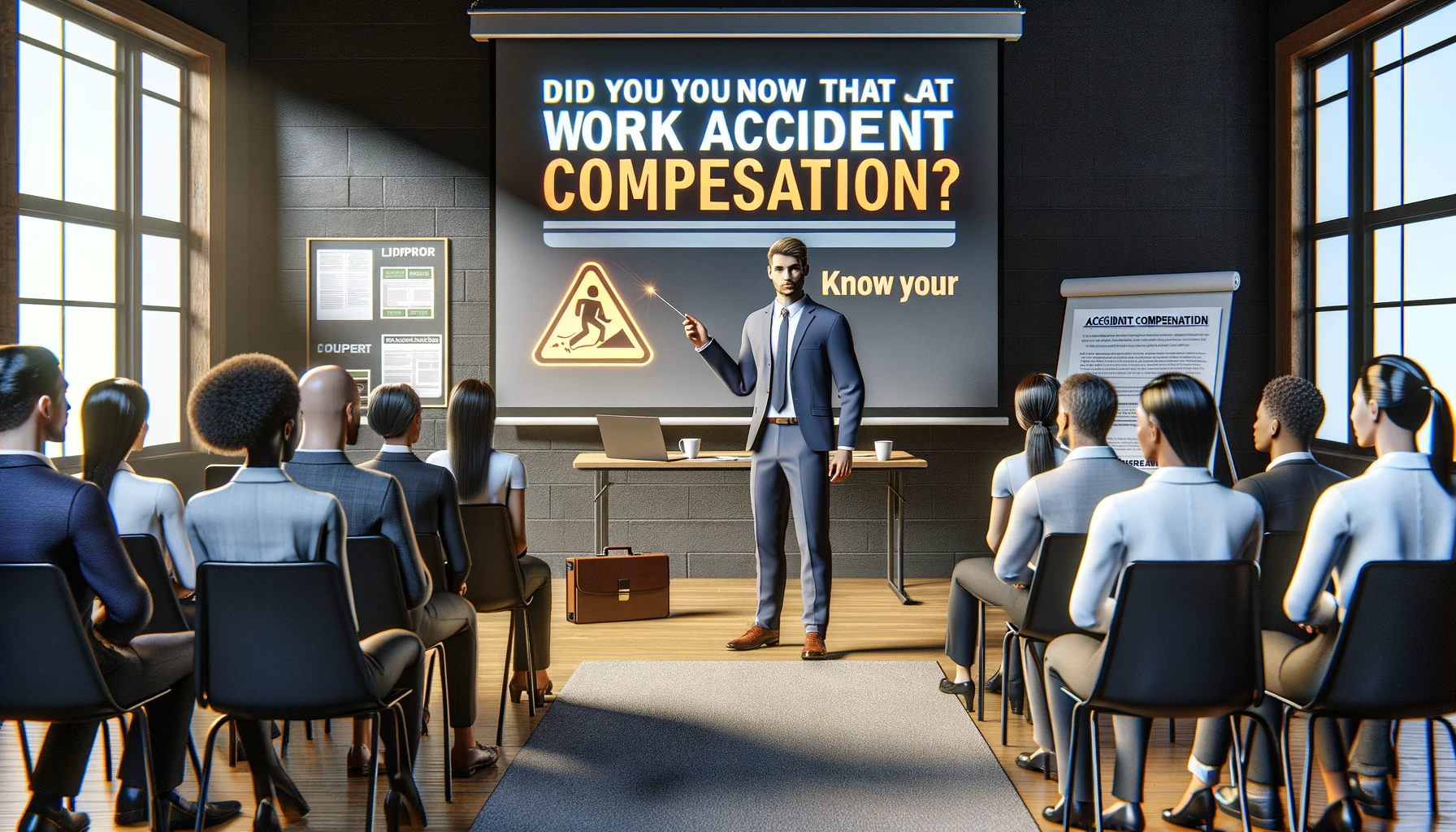Workers' Compensation is a vital safety net for employees who suffer from workplace injuries or illnesses. In California, navigating the workers' compensation claim process can be complex and fraught with potential pitfalls. To ensure that you receive the benefits you deserve without unnecessary delay or denial, it's crucial to be aware of and avoid common mistakes.


Common Mistake #1: Incomplete or Incorrect Paperwork
One of the most significant barriers to a successful workers' comp claim in California is the submission of incomplete or incorrect paperwork. The workers' compensation system is document-intensive, requiring precise and accurate information. From the initial claim form to medical reports, every detail counts. An error as simple as a misspelled name or incorrect date can result in your claim being denied. To avoid such workers' comp claim submission errors, double-check all information and consider having a professional review your paperwork. Additionally, it's essential to understand that the paperwork you submit serves as the foundation of your claim. Any inaccuracies or omissions can not only lead to claim denials but also prolong the process of receiving the benefits you're entitled to. Take your time when completing forms and ensure that all details are accurate and up-to-date.
Common Mistake #2: Missing Deadlines
California has strict timelines for reporting injuries and filing workers' comp claims. Missing these deadlines can be a costly mistake, leading to missed deadlines for workers' comp claims and the potential forfeiture of your right to compensation. It's imperative to act swiftly and adhere to the required time frames, ensuring that your claim is filed within the statutory limits. Understanding the importance of deadlines cannot be overstated. Timely reporting and filing ensure that your claim remains valid and that you're within your rights to seek workers' compensation benefits. Being aware of these critical timeframes and taking prompt action can significantly impact the outcome of your claim.Common Mistake #3: Not Reporting the Injury Immediately
When an injury occurs at work, it's essential to report it to your employer as soon as possible. Delaying the report can raise questions about the validity of the injury and may result in common workers' comp claim issues, such as challenges to the claim's legitimacy. Prompt reporting demonstrates the seriousness of the incident and is a foundational step in the workers' compensation claim process in CA. Immediate reporting is not only about adhering to legal requirements but also about ensuring that your employer is aware of the incident and can take appropriate actions. It's a critical step in initiating the workers' comp process and receiving timely medical care and benefits.Common Mistake #4: Failing to Seek Medical Treatment
Medical evidence is the cornerstone of any workers' comp claim. If you don't seek medical treatment immediately after your injury, you risk not having the medical documentation necessary to support your claim. This mistake can lead to workers' comp claim denial reasons such as lack of evidence of injury severity. Always prioritize your health and document your injuries and treatment comprehensively. Furthermore, seeking prompt medical treatment is not only crucial for your health but also for building a strong foundation for your claim. Medical records serve as evidence of your injury's severity and its connection to your workplace, which is essential for a successful claim. Delaying treatment can lead to doubts about the seriousness of your injury and may hinder your ability to secure the benefits you need.Common Mistake #5: Not Understanding Eligibility Requirements
Misunderstanding the eligibility criteria for workers' compensation can lead to workers' compensation eligibility mistakes. Not all injuries or situations may qualify for workers' comp benefits. Familiarize yourself with the requirements, and if you're uncertain about your eligibility, seek guidance to avoid incorrect assumptions that could jeopardize your claim. Understanding eligibility requirements is a fundamental aspect of navigating the workers' compensation system. It's not solely about meeting the basic criteria but also about recognizing the nuances that may affect your eligibility. Seek clarification if you have any doubts to ensure that you're making informed decisions regarding your claim.The Impact of Mistakes on the Workers' Comp Claim Process
Filing errors, such as incorrect workers' comp paperwork in California, can lead to significant setbacks. They can cause delays, additional stress, and, in some cases, a complete denial of your claim. It's not just about the immediate financial implications; the emotional toll of navigating a complex system while recovering from an injury can be overwhelming. Mistakes in the workers' comp claim process can have a cascading effect, leading to prolonged disputes and uncertainty about your financial and medical well-being. Recognizing the gravity of these errors underscores the importance of taking precautions to avoid them.Tips for Avoiding Mistakes in Workers' Comp Claims
To avoid these common pitfalls, educate yourself on the workers' compensation claim process in CA. Keep meticulous records, adhere to deadlines, report injuries immediately, seek medical attention, and understand your eligibility. For additional workers' comp claim advice in California, consider consulting with a workers' compensation attorney who can provide personalized guidance. Moreover, it's advisable to proactively seek guidance and support throughout the workers' comp claim process. The expertise of a workers' compensation attorney can be invaluable in helping you navigate the complexities, making informed decisions, and maximizing your chances of a favorable outcome.
What to Do If Your Claim Is Denied
If you face a denial, don't despair. The workers' comp claim appeal process in California offers a pathway to contest the decision. Gather all relevant information, understand the reasons for the denial, and seek professional advice to navigate the appeals process effectively. Understanding your rights and options in the event of a claim denial is crucial. The appeals process is an opportunity to present your case, rectify errors, and ensure that your legitimate claim receives the consideration it deserves.Conclusion
Remember, the key to a successful workers' compensation claim in California is attention to detail and proactive management of the filing process. By understanding and avoiding these five common mistakes, you can improve your chances of a favorable outcome and ensure that you receive the support you need during your recovery.Look for an attorney who has the right legal resources for your legal needs.
Contact us here on the Warmuth Law website or through our hotline 888-517-9888.











